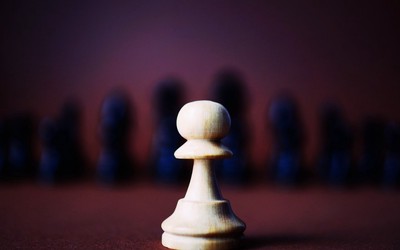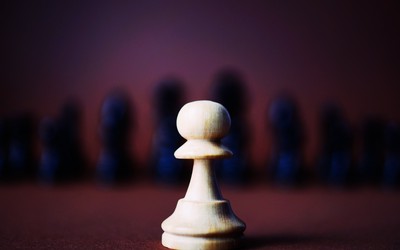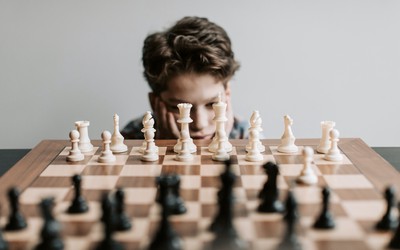
How to deal with rating fear
A summary of my learnings of dealing with rating fearLike many people, I used to struggle with rating fear. Rating fear is basically the fear of having your rating not match your hopes and expectations.
For me this manifested in two ways: First, the fear of getting a worse rating, than I expected, and second, the fear of losing my current rating. When you're expecting yourself to be a 1700 player and your rating doesn't get above 1600, that hurts. And when you finally beat the 1700, you're scared to fall back down again.
Rating fear can be really painful, and often it stopped me from playing altogether. It can kill all the fun in this beautiful game, that's why I've been looking for ways to decrease it and I'm proud to say, that I've successfully managed to do that. In this article I want to share my learnings, maybe they'll be useful for others as well.
Gaining a new perspective: rating vs. skill level
My biggest breakthrough happened, when I realised the difference between rating and skill level, and started to focus on the latter.
Your chess rating is a rough approximation of your current skill level, compared to others, in a specific pool of players. It's subject to many variable factors, like your current form and focus, your opponent's form and focus, luck, bad luck, and many more. You'll play better after a good night's sleep, than after a long, exhausting day at work, and the same goes for your opponent. Sometimes you will lose against a strong but vastly underrated opponent, or time out because of your shaky internet connection, and your rating might fall way below your actual level of play.
Your rating is volatile and unpredictable, so it makes sense to put your focus on a much more steady indicator: your actual skill level.
Unlike your rating, which has many ups and downs, your actual skill level is very predictable. Every game you play, every puzzle you solve, everything you learn, practice or analyse, everything chess related you do or think, increases your skill level. You can imagine it like an upward stairway, that hops up a bit everytime you learn something new.
For me this opened up a whole new world, because suddenly playing and learning was not about getting a higher number on my Lichess profile anymore. I could simply enjoy spending time doing something I love, while knowing, that my skill level will constantly increase, and trusting, that my rating will follow sooner or later.
As Barry Hymer wrote in his great article on Chessable: "Play trumps performance, and precedes it". When you're having fun doing what you're doing, improvement will inevitably come.
Three things I then actually did
After gaining this new perspective and focusing on my skill level, rather than my rating, I did the following things, which further helped me decrease my rating fear.
1.) Just play
I was scared where my rating would land, so I decided to just play 20 games in a time control, ignore the rating until then, and then see where I am. I had hoped to be higher, but it wasn't too bad and it was good to simply face reality and accept where I was.
2.) Embrace losing
Before every game I say out loud to myself: it doesn't matter if you win or lose, just have fun. I also dropped my rating on purpose once, to curb my fear of dropping. I didn't tank games, but I tried exotic openings and weird moves and lost more games - and rating points. I learned new things and soon afterwards my rating went back up again.
3.) Zen mode and staying away from my profile
I tended to underestimate lower rated and overestimate higher rated opponents. Not seeing my opponents rating helped me focus more on what was actually going on on the board (you can enable zen mode in the Lichess settings, or by pressing 'z' in game). Only after the game I look at my opponents rating, just to get a feeling for playing strengths. I roughly know my own rating, but I try to stay away from my profile and ignore the numbers as good as I can.
Why not only play casual games?
You could argue, that it would make sense to only play casual games, to avoid this whole rating drama altogether. But even though it stresses me sometimes, I like having a rating. I like to see where I stand, I like to see my progress and it's a great match making mechanism.
Also I think ratings make players more dedicated and serious in games - which is especially important when playing online. In my experience, players in online casual games tend to abandon games quicker, blitz out random moves or try weird, unsound opening traps and then quit after failing, which makes playing a lot less enjoyable.
Conclusion
Ratings are a valuable part of chess. They are a good balancing mechanism, give you a rough approximation of your current skill level and an indication of your progress.
But it's vital to keep in mind what's truly important. Having a higher rating will not make you enjoy chess more and when rating fear stops you from playing, it robs you of great pleasures and experiences.
Most of us are playing chess simply because we love doing it, so having fun should be the number one priority - improvement will come by itself.


